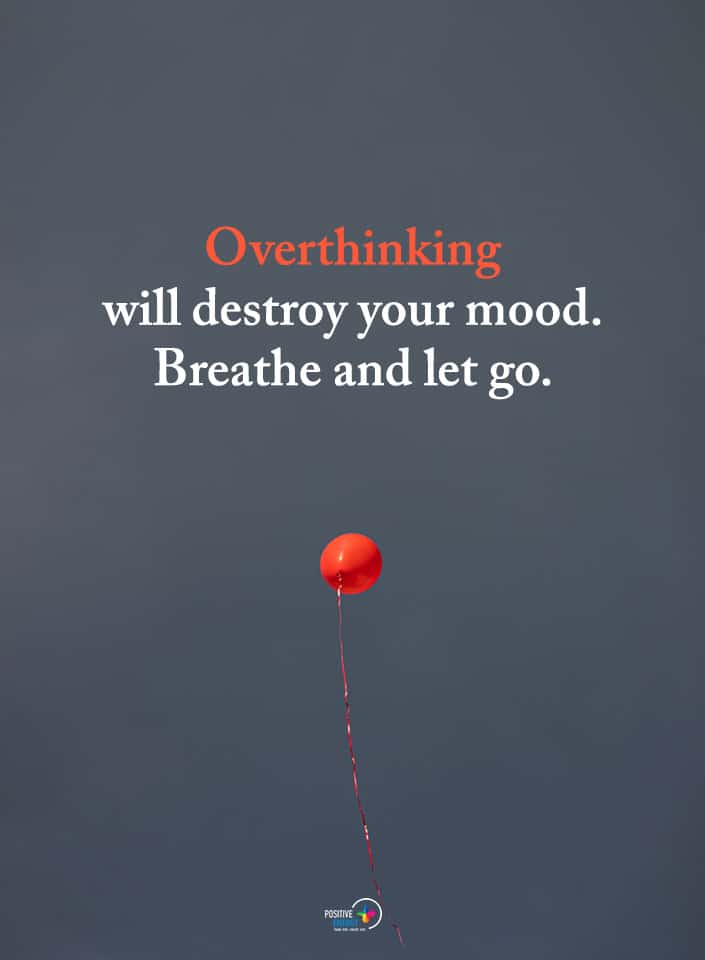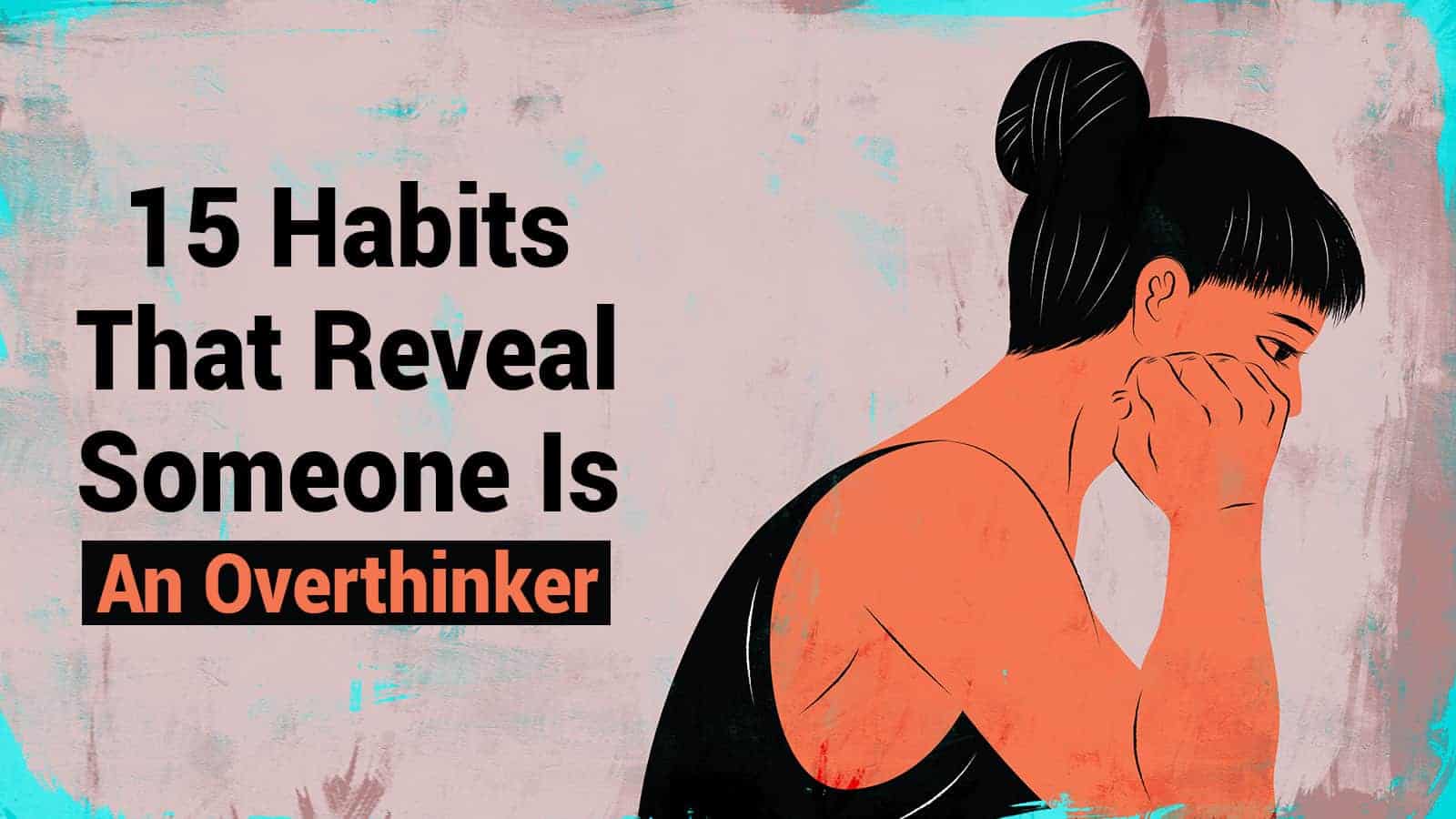Most people are familiar with “The Thinker,” which is the iconic statue of a man poised in deep concentration. We wonder if he is contemplating a simple task or debating a life-altering decision. Perhaps he is one of the countless examples of an overthinker plagued with worry.
Advanced thinking and reasoning are two of the abilities that separate us from the animal kingdom. You need your thought processes for self-preservation and quality life. When you start to second-guess yourself and rumination takes over your life, it becomes a severe issue.
It’s normal to go on a trip and suddenly wonder if you turned off the stove or locked all the doors. Have you ever gone back to the house to recheck everything and set your mind at ease? You are not alone in doing so.
Fyodor Dostoevsky, the famous Russian novelist, once said that overthinking is like a disease, and he was on the right track. Chronic overthinking is often one of the main symptoms of anxiety and obsessive-compulsive behavior or OCD. Mental health professionals say that these disorders can range from mild to debilitating.
Habits of an Overthinker
Has anyone ever told you that you think too much? While critical reasoning skills can advance your knowledge and teach you new things, too much thinking can paralyze your life. If you are an overthinker, the constant worry can erode your self-confidence.
When you chronically doubt yourself and second-guess every decision you make, it can ruin even the most pleasant experiences. Over time, your rumination can lead to depression and pessimism, which can sour relationships with friends and loved ones. The more you overthink, the less you can relax and enjoy anything.
You needn’t let these negative thought patterns develop into more serious mental conditions. Once you recognize you have a problem, you have taken the first step toward a solution. If you have some of these 15 habits, you may be an overthinker.
1. You Are a Perfectionist
While most people try to do their best at whatever they do, perfectionists want even more. They often put unrealistic expectations on themselves and others. Unfortunately, these people have difficulties getting things done because they demand perfection.
Is this a familiar scenario for you?
If you are a perfectionist, anything you do puts you on edge, and you can never be satisfied with the results. Your unreasonable demands may put a strain on relationships at work or home.
2. You Have Difficulty Prioritizing
Someone wisely observed that if we make everything a priority, then nothing is important. Have you ever been around people who are in a perpetual storm over the smallest things? These drama-mongers are usually so wrapped up in trivial matters that the urgent ones get swept under the rug.
When you are an overthinker, your ability to prioritize tasks and problems is stymied. You may feel so overwhelmed with daily events that you can’t struggle to stay afloat. You may feel like your energy is drained because you often use it all on things that don’t matter.
3. You Often Feel Paranoid
Remember the old wives’ tale that warned if your ears are itching, someone is talking about you? While you probably dismiss this saying as absurd, you may still think people are dissing you behind your back. Paranoia can distort your sense of reality and make you distrustful of everyone around you.
4. You Hold Grudges
Since the Middle Ages, to forgive and forget has been deemed a virtue. While you can’t forget offenses, you do have the power to forgive the offender. Or, maybe you are a person who ruminates over past hurts and holds a grudge as vindication.
For the overthinker, hurtful events from the past play in an ongoing loop in their brain. When you cling to a grudge, every remembrance keeps the wound open and sore. Only when you can focus on forgiveness can you get past the pain and walk into healing.
5. You Spend More Time Thinking Than Doing
Have you ever watched a dog chase his tail? He may try to run faster, but he ends up going in circles, and his efforts are in vain. Such are the efforts of people who are so busy thinking that they don’t get anything accomplished.
If you are a tail-spinner, your feelings of perfectionism and loss of prioritizing add fuel to the fire. Of course, you should plan and make wise decisions. However, you must learn to trust your decisions and act on them, even if you do make mistakes along the way.
6. You Like to Toot Your Own Horn
Overthinkers often get their ego wrapped up in their skewed thought processes. Although the egotist appears abundantly self-confident, it is a ruse meant to hide poor self-esteem. To continue this illusion, these people feel the need to overplay their achievements.
There’s nothing wrong with being proud of a job well done, and you needn’t feel guilty to accept praise from others. However, your achievements should prompt you to do more instead of just revel in what you’ve done in the past. Overthinking success doesn’t guarantee it in the future.
7. You Constantly Analyze What Others Say
Part of being a skilled listener is to think about what the other person is saying to you. It enhances your communication, and there are fewer chances of a misunderstanding. However, you do yourself and others a disservice when you analyze each word with paranoia.
You may be missing a fruitful conversation if you are forever dissecting every sentence, looking for a hidden meaning. When you are overly critical and mistrusting, you often assume that people are badmouthing or making fun of you in their conversation. If this continues, you may stop interacting with others and become isolated.
8. You Are a Pessimist (classic overthinker trait!)
By observing the weather patterns, you realize that every day can’t be gloriously sunny. Likewise, it’s unrealistic to think that every situation in your life will be positive. It takes both sunshine and rain for the earth to flourish, and the same goes for life.
However, this principle doesn’t give us a license to be negative about everything. Instead of learning and growing from past hurts and disappointments, some people become bitter. Have you unknowingly become a pessimist and assume the worst?
9. You Are Impatient With Responses
We live in a world that demands instant gratifications and responses. When you call friends or family, you may expect them to answer by the second ring, or at least call back as soon as they get your voicemail. As soon as you hit the send button on an email, you might want the recipient to read it immediately and send a response.
Such impatience can be a sign of overthinking. Is the reason this person hasn’t called or emailed you right back because you offended them, or they don’t like you? Here is another instance of self-doubt getting in the overthinking mix.
10. You Are Hounded by What If and If Only
We’re all guilty of playing out the what-ifs and if only scenarios. Part of our brains have difficulty letting go of past regrets. Like many people, you may find an unexplainable comfort in re-scripting past conversations and events.
11. You are Stuck In the Past or the Future
Someone once remarked that depression is ruminating over the past, while anxiety is fretting over the future. When you are caught in this unhealthy mix, you are missing out on the present. Your mind is too busy with regrets and unfounded foreboding that you can’t enjoy what is before you now.
12. Mistakes Constantly Replay in Your Mind
When you consider the golden rule conversely, you should treat yourself as well as you treat others. Would a true friend or loved one constantly throw the past up in your face? You may be sabotaging your self-esteem when you refuse to let go of your past failures and mistakes.
13. You Don’t Sleep Well at Night
Aside from medical issues, many people complain that they can’t sleep because their brains won’t let them. Are you frazzled through the night by the constant chatter in your head? Perhaps you are replaying the events of the day with regret, or you are staging tomorrow with pessimism and anxiety.
14. You Dwell on Things You Can’t Control
In the beloved Serenity Prayer, people ask for the peace to accept things they can’t change, and that’s often difficult. Overthinking situations that are beyond your control just drive up your anxiety and frustration levels.
15. You are Afraid to Stop Thinking
Being an overthinker gives you a false sense of responsibility for everything. You may feel that if you don’t figure out every situation and provide input, then nothing will go right. It’s a relief when you realize that nobody has that power, and the world won’t stop revolving if you rest your brain.
 Final Thoughts on Being an Overthinker
Final Thoughts on Being an Overthinker
There is such a concept as too much of a good thing, and thinking is one of them. If you see yourself in these warning signs, it may be time to re-evaluate your thinking habits. Save your brain energy to use in a more positive way.






















